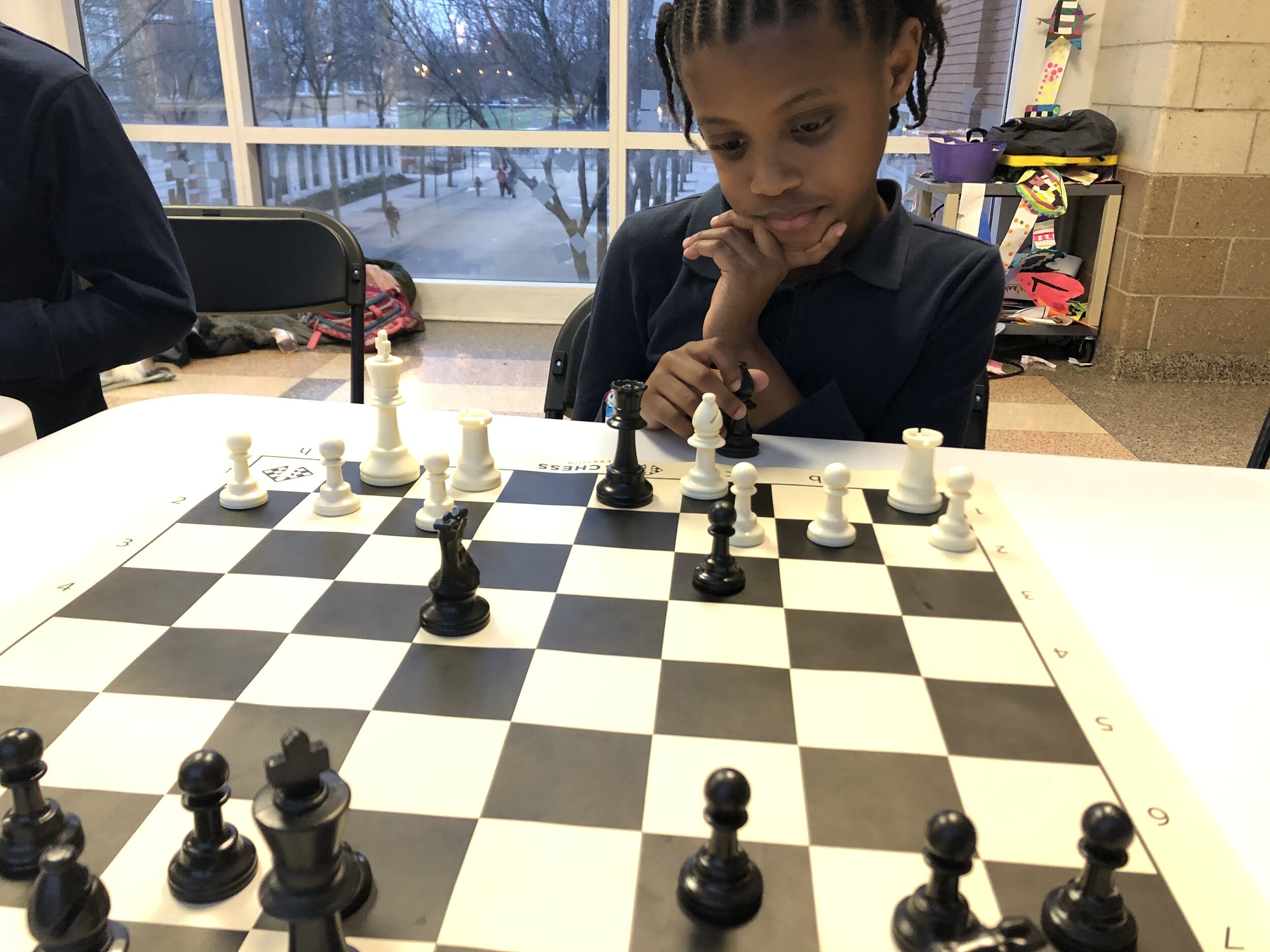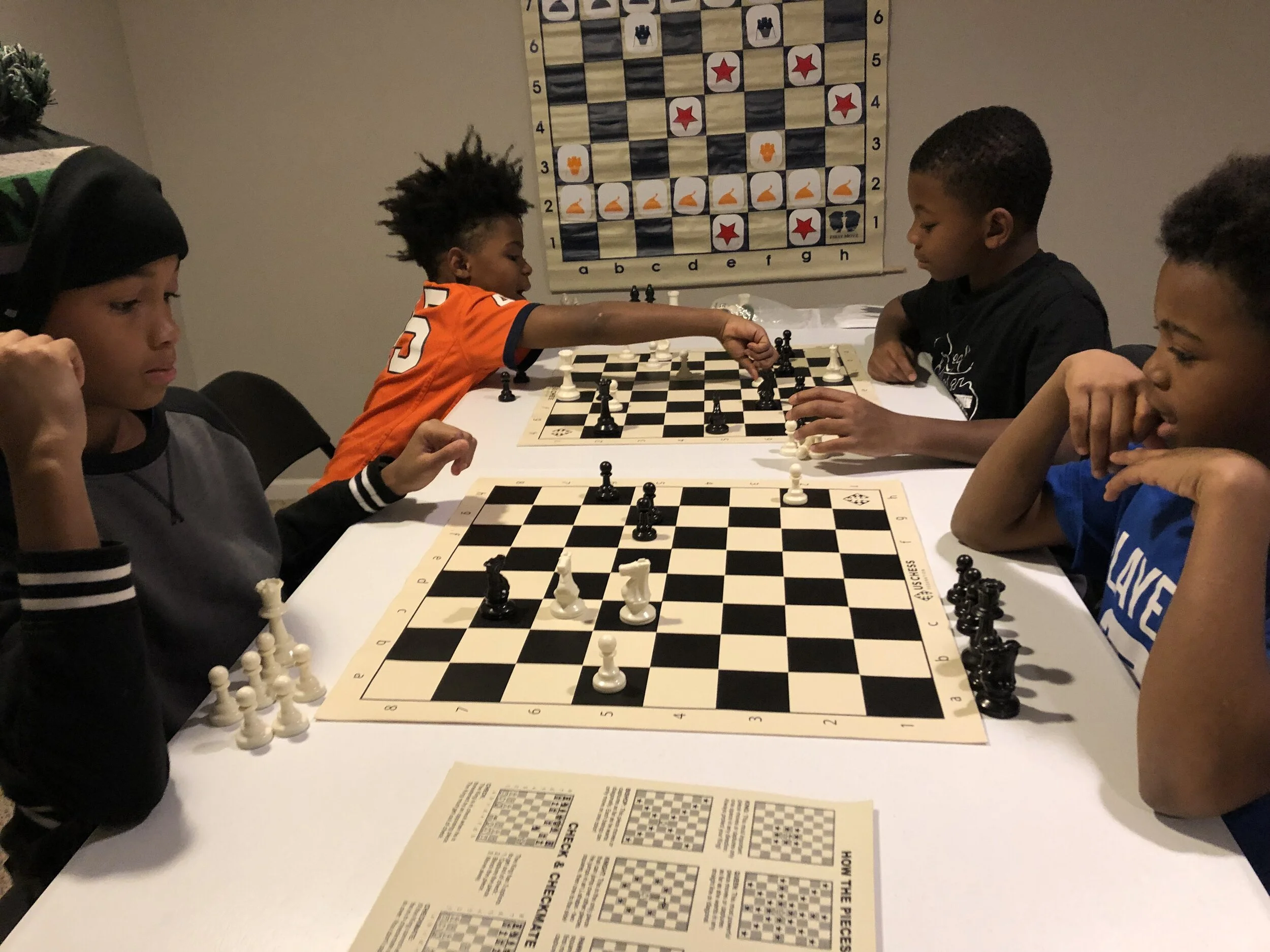Our Mission:
Encourage.
Enriching the lives of youth with chess lessons on the board and life lessons off the board.
Our Vision:
Empower.
Creating the next generation of problem solvers, critical thinkers and future leaders.
How has chess helped you in school and in life?
"Chess helps me to think slowly and wisely because in chess you have to make the best move and must stay calm even when you are in tough situations."
— William, 2 Time Tournament Champion
Why Chess?
Why are so many schools, organization and stormers supporting chess playing in schools?
Simply, it is the world's most enjoyed strategy game and a fantastic way to sharpen one's mind academically. Chess promotes logical thinking, instills a sense of self‑confidence and self‑worth, and improves communication and pattern recognition skills. Chess also teaches the values of hard work, concentration, objectivity, and commitment.
For example, the New York City Schools Chess Program included more than 3,000 inner-city children in more than 100 public schools between 1986 and 1990. Based on academic and anecdotal records only, Christine Palm writes that the Program has proven that:
Chess dramatically improves a child's ability to think rationally
Chess increases cognitive skills
Chess improves children's communication skills and aptitude in recognizing patterns, therefore:
Chess results in higher grades, especially in English and Math studies
Chess builds a sense of team spirit while emphasizing the ability of the individual
Chess teaches the value of hard work, concentration and commitment
Chess instills in young players a sense of self-confidence and self-worth
Chess makes a child realize that he or she is responsible for his or her own actions and must accept their consequences
Chess teaches children to try their best to win, while accepting defeat with grace
Chess provides an intellectual, competitive forum through which children can assert hostility, i.e. "let off steam," in an acceptable way
Chess can become a child's most eagerly awaited school activity, dramatically improving attendance
Chess allows girls to compete with boys on a non-threatening, socially acceptable plane
Chess allows stormers and teachers to view each other in a more sympathetic way
Chess, through competition, gives kids a palpable sign of their accomplishments
Chess provides children with a concrete, inexpensive and compelling way to rise above the deprivation and self-doubt, which are so much a part of their lives[1]
[1] "Chess in Education Research Summary", Dr. Robert Ferguson





